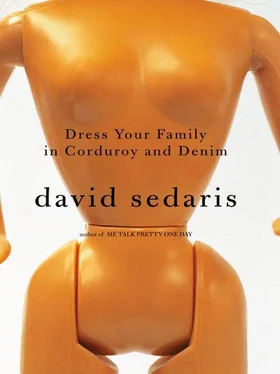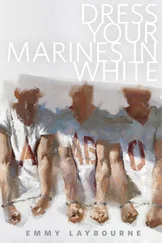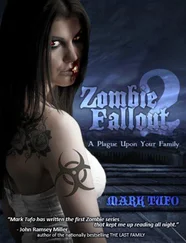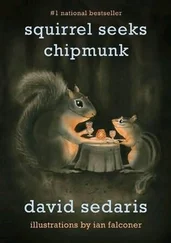After I'd collected my bag, Martin saw me to the door. "We'll have to do this again sometime," he said, meaning that we would never see each other again.
"That would be nice," I told him.
He offered his warm, gooey hand, and in a spirit of brotherhood, I accepted it.
ON A SUMMER EVENING in Paris, Hugh and I went to seeThe End of the Affair, a Neil Jordan adaptation of the Graham Greene novel. I had trouble keeping my eyes open because I was tired and not completely engaged. Hugh had trouble keeping his eyes open because they were essentially swollen shut: he sobbed from beginning to end, and by the time we left the theater, he was completely dehydrated. I asked if he always cried during comedies, and he accused me of being grossly insensitive, a charge I'm trying to plea-bargain down to simply obnoxious.
Looking back, I should have known better than to accompany Hugh to a love story. Such movies are always a danger, as unlike battling aliens or going undercover to track a serial killer, falling in love is something most adults have actually experienced at some point in their lives. The theme is universal and encourages the viewer to make a number of unhealthy comparisons, ultimately raising the question "Why can'tour lives be like that?" It's a box best left unopened, and its avoidance explains the continued popularity of vampire epics and martial-arts extravaganzas.
The End of the Affairmade me look like an absolute toad. The movie's voracious couple was played by Ralph Fiennes and Julianne Moore, who did everything but eat each other. Their love was doomed and clandestine, and even when the bombs were falling, they looked radiant. The picture was fairly highbrow, so I was surprised when the director employed a device most often seen in TV movies of the week: everything's going along just fine and then one of the characters either coughs or sneezes, meaning that within twenty minutes he or she will be dead. It might have been different had Julianne Moore suddenly started bleeding from the eyes, but coughing, in and of itself, is fairly pedestrian. When she did it, Hugh cried. When I did it, he punched me in the shoulder and told me to move. "I can't wait until she dies," I whispered. I don't know if it was their good looks or their passion, but something about Julianne Moore and Ralph Fiennes put me on the defensive.
I'm not as unfeeling as Hugh accuses me of being, but things change once you've been together for more than ten years. They rarely make movies about long-term couples, and for good reason: our lives are boring. The courtship had its moments, but now we've become the predictable Part II no one in his right mind would ever pay to see. ("Look, they're opening their electric bill!") Hugh and I have been together for so long that in order to arouse extraordinary passion, we need to engage in physical combat. Once, he hit me on the back of the head with a broken wineglass, and I fell to the floor pretending to be unconscious. That was romantic, or would have been had he rushed to my side rather than stepping over my body to fetch the dustpan.
Call me unimaginative, but I still can't think of anyone else I'd rather be with. On our worst days, I figure things will work themselves out. Otherwise, I really don't give our problems much thought. Neither of us would ever publicly display affection; we're just not that type. We can't profess love without talking through hand puppets, and we'd never consciously sit down to discuss our relationship. These, to me, are good things. They were fine with Hugh as well, until he saw that damned movie and was reminded that he has other options.
The picture ended at about ten, and afterward we went for coffee at a little place across the street from the Luxembourg Gardens. I was ready to wipe the movie out of my mind, but Hugh was still under its spell. He looked as though his life had not only passed him by but paused along the way to spit in his face. Our coffee arrived, and as he blew his nose into a napkin, I encouraged him to look on the bright side. "Listen," I said, "we maybe don't live in wartime London, but in terms of the occasional bomb scare, Paris is a pretty close second. We both love bacon and country music, what more could you possibly want?"
What more could he want? It was an incredibly stupid question and when he failed to answer, I was reminded of just how lucky I truly am. Movie characters might chase each other through the fog or race down the stairs of burning buildings, but that's for beginners. Real love amounts to withholding the truth, even when you're offered the perfect opportunity to hurt someone's feelings. I wanted to say something to this effect, but my hand puppets were back home in their drawer. Instead, I pulled my chair a few inches closer, and we sat silently at our little table on the square, looking for all the world like two people in love.
ALTHOUGH WE'D DISCUSSED my upcoming visit to Winston-Salem, my sister and I didn't make exact arrangements until the eve of my arrival, when I phoned from a hotel in Salt Lake City.
"I'll be at work when you arrive," she said, "so I'm thinking I'll just leave the key under the hour ott near the ack toor."
"The what?"
"Hour ott."
I thought she had something in her mouth until I realized she was speaking in code.
"What are you, on a speakerphone at a methadone clinic? Why can't you just tell me where you put the goddam house key?"
Her voice dropped to a whisper. "I just don't know that I trust these things."
"Are you on a cell phone?"
"Of course not," she said. "This is just a regular cordless, but still, you have to be careful."
When I suggested that actually shedidn 'thave to be careful, Lisa resumed her normal tone of voice, saying, "Really? But I heard…"
My sister's the type who religiously watches the fear segments of her local Eyewitness News broadcasts, retaining nothing but the headline. She remembers that applesauce can kill you but forgets that in order to die, you have to inject it directly into your bloodstream. Pronouncements that cellphone conversations may be picked up by strangers mix with the reported rise of both home burglaries and brain tumors, meaning that as far as she's concerned, all telecommunication is potentially life-threatening. If she didn't watch it on the news, she read it inConsumer Reports or heard it thirdhand from a friend of a friend of a friend whose ear caught fire while dialing her answering machine. Everything is dangerous all of the time, and if it's not yet been pulled off the shelves, then it's certainly under investigation — so there.
"Okay," I said, "but can you tell mewhich hour ott? The last time I was there you had quite a few of them."
"It's ed," she told me. "Well. . eddish."
I arrived at Lisa's house late the following afternoon, found the key beneath the flowerpot, and let myself in through the back door. A lengthy note on the coffee table explained how I might go about operating everything from the television to the waffle iron, each carefully detailed procedure ending with the line "Remember to turn off and unplug after use." At the bottom of page three, a postscript informed me that if the appliance in question had no plug — the dishwasher, for instance — I should make sure it had completed its cycle and was cool to the touch before leaving the room. The note reflected a growing hysteria, its subtext shrieking,Oh-my-God-he 's-going-to-be-alone-in-my-house-for-close-to-an-hour. She left her work number, her husband's work number, and the number of the next-door neighbor, adding that she didn't know the woman very well, so I probably shouldn't bother her unless it was an emergency. "P.P.S. She's a Baptist, so don't tell her you're gay."
The last time I was alone at my sister's place she was living in a white-brick apartment complex occupied by widows and single, middle-aged working women. This was in the late seventies, when we were supposed to be living in dorms. College hadn't quite worked out the way she'd expected, and after two years in Virginia she'd returned to Raleigh and taken a job at a wineshop. It was a normal-enough life for a twenty-one-year-old, but being a dropout was not what she had planned for herself. Worse than that, it had not been plannedfor her. As children we'd been assigned certain roles — leader, bum, troublemaker, slut — titles that effectively told us who we were. As the oldest, smartest, and bossiest, it was naturally assumed that Lisa would shoot to the top of her field, earning a master's degree in manipulation and eventually taking over a medium-size country. We'd always known her as an authority figure, and while we took a certain joy in watching her fall, it was disorienting to see her with so little confidence. Suddenly she was relying on other people's opinions, following their advice and withering at the slightest criticism.
Читать дальше












